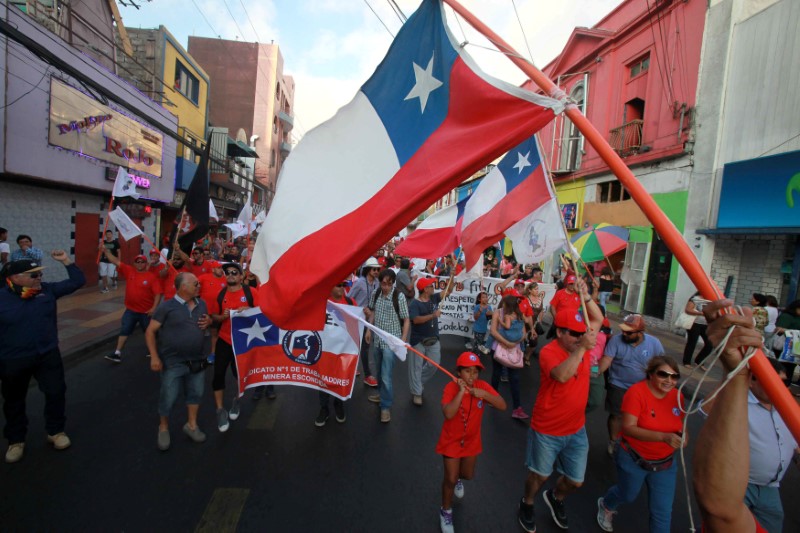By Fabian Cambero
SANTIAGO (Reuters) - The striking union at BHP Billiton's Escondida copper mine in Chile, the world's largest, said on Saturday it will not accept the company's offer to return to the negotiating table, and called on BHP to clarify its negotiating positions.
During the strike, which started on Feb. 9, Escondida's 2,500-member Union No. 1 has repeatedly said it has three non-negotiable demands the company must commit to before workers return to the table.
First, every miner must be offered the same benefits package. Second, shift patterns must not be made more taxing. Third, the company may not reduce any benefits, such as vacation and healthcare, which were included in the previous contract signed four years ago.
BHP (AX:BHP) (L:BLT) said on Friday it had invited the union to resume talks as a first step toward ending the month-long strike. The union said on Saturday it would not accept before the company addresses its three core concerns.
"This invitation that the company sent us doesn't acknowledge nor take into account the three points we've demanded, it's very ambiguous, and it talks about what we've already touched on before," union spokesman Carlos Allendes told Reuters.
"We're going to ask that the company pronounce...that it's taking into account" the union's three points, Allendes said. "If it doesn't do so definitively...(the current situation) won't break."
A representative for BHP could not be immediately reached for comment.
Escondida produced more than 1 million tonnes of copper last year, around 5 percent of the world's total, and economists expect the strike to impact February economic growth in commodities-dependent Chile.
The strike, as well as stoppages at Freeport-McMoran Inc's (N:FCX) Grasberg mine in Indonesia and Freeport's Cerro Verde mine in Peru, have pushed global copper prices

Rio Tinto (L:RIO) (AX:RIO) and Japanese companies including Mitsubishi (T:8058) hold minority interests in Escondida.